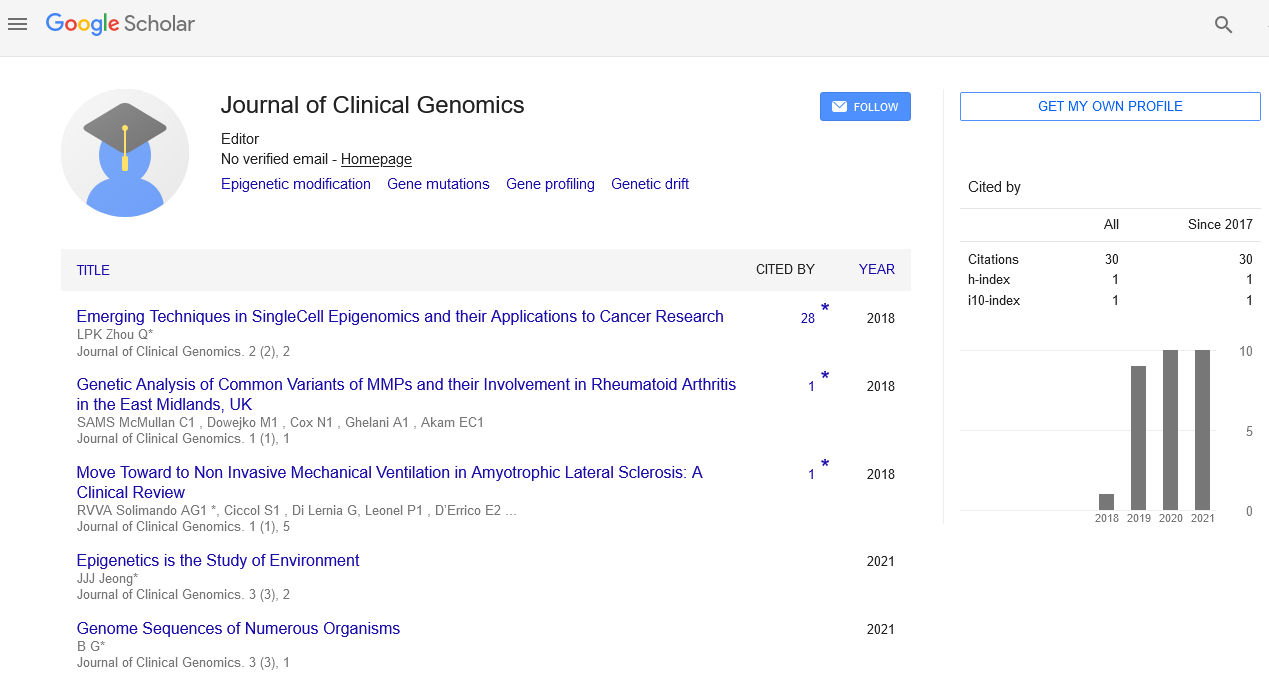Editorial, J Clin Genom Vol: 7 Issue: 1
Ethical and Social Implications of Clinical Genomics
Neha Banerjee*
Department of Bioethics, National Institute of Biomedical Genomics (NIBMG), Kalyani, West Bengal, India
- *Corresponding Author:
- Neha Banerjee
Department of Bioethics, National Institute of Biomedical Genomics (NIBMG), Kalyani, West Bengal, India
E-mail: neha.banerjee@nibmg.ac.in
Received: 01-March-2025, Manuscript No. jcg-25-169330; Editor assigned: 4-March-2025, Pre-QC No. jcg-25-169330 (PQ); Reviewed: 20-March-2025, QC No jcg-25-169330; Revised: 26-March-2025, Manuscript No. jcg-25-169330 (R); Published: 30-March-2025, DOI: 10.4172/jcg.1000144
Citation: Neha B (2025) Ethical and Social Implications of Clinical Genomics. J Clin Genom 7:144
Introduction
While clinical genomics has immense potential, it also presents critical ethical and social challenges. These include issues of data ownership, consent, privacy, and equitable access—especially relevant in a diverse country like India.
Genomic Data Privacy and Consent
Genomic information is sensitive and often shared across family lines. Informed consent must clearly address risks, data sharing, re-contact policies, and the possibility of incidental findings [1]. In India, the Personal Data Protection Bill and draft National Digital Health Blueprint guide such ethical considerations [2].
Equity and Access
Genomic technologies are largely concentrated in urban centers, potentially deepening healthcare disparities [3]. To ensure equitable benefits, genomic studies must include diverse ethnic and rural populations. Public engagement, policy dialogue, and subsidized genomic testing are necessary steps forward [4, 5].
 Spanish
Spanish  Chinese
Chinese  Russian
Russian  German
German  French
French  Japanese
Japanese  Portuguese
Portuguese  Hindi
Hindi 